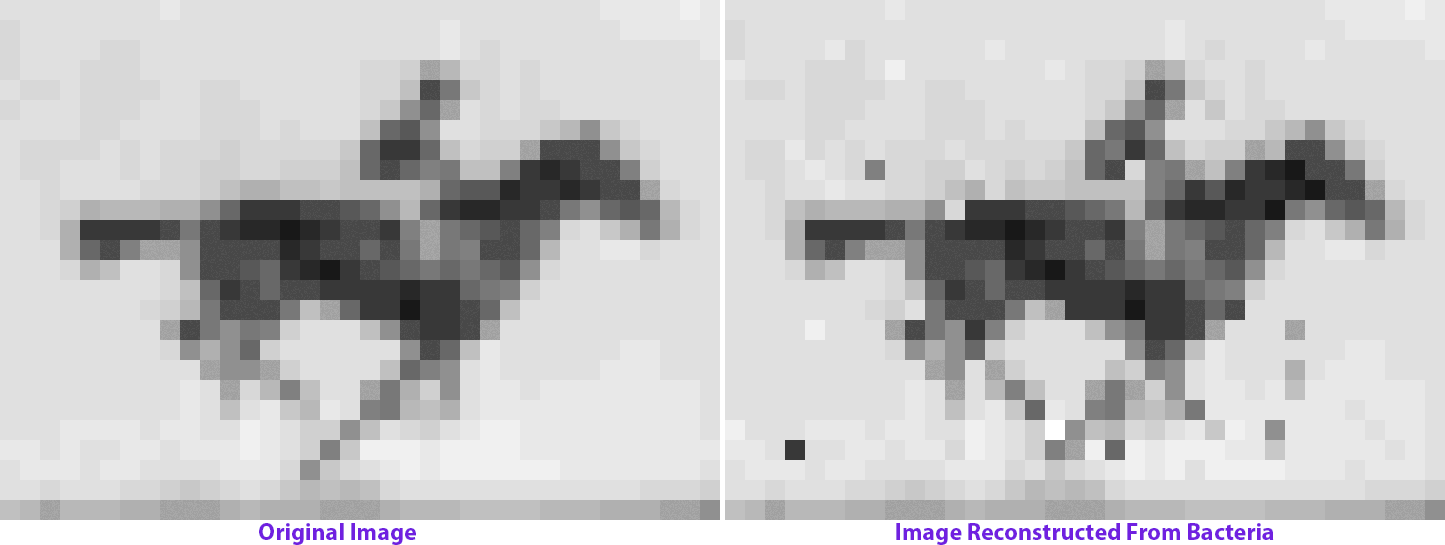top of page
Gladstone Institutes & UCSF
We build on biotechnology to make the impossible possible. These are a few of the projects we're working on now.
Precise Genome Engineering
Curing genetic disease and advancing our understanding of genomics requires the ability to modify the cellular genomes precisely. We develop and deploy precise editing technology using a bacterial reverse transcriptase known as the retron to produce editing donors for recombineering in prokaryotes and CRISPR-based genome editing in eukaryotes.
Schubert et al. PNAS (2021); Lopez et al. Nature Chemical Biology (2021); Fishman, Crawford, Bhattarai-Kline, Poola et al. Nature Biotechnology (2024); González-Delgado, Lopez et al. Nature Chemical Biology (2024); Khan, Rojas-Montero, González-Delgado et al. Nature Biotechnology (2024); Crawford et al. NAR (2024); González-Delgado et al. bioRxiv (2025)

Phage Engineering & Phage Therapy
Rising bacterial resistance to small-molecule antibiotics poses an enormous threat to human health. Bacteriophages, which naturally shape bacterial communities, can be co-opted as a biological technology to help eliminate pathogenic bacteria from our bodies and food supply and thereby reduce our dependence on small-molecule antibiotics. The major barrier to the widespread use of phage therapy is the hurdle of isolating, characterizing, and purifying natural phages from the environment for each new target strain of bacteria. An alternative is to engineer phage genomes. The Shipman Lab has recently developed a new, scalable approach for engineering phage genomes using recombitrons: modified bacterial retrons that generate recombineering donor DNA paired with single stranded binding and annealing proteins to integrate those donors into phage genomes. A wild-type phage infects a host harboring these editing materials and an edited phage comes out, enabling us to efficiently create modifications in phage genomes without the need for counterselection.
Fishman, Crawford, Bhattarai-Kline, Poola et al., Nature Biotechnology (2024)


Molecular Recording
Experimental biology has been limited by the need for destructive sampling or direct observation of cells to quantify transcriptional state. These requirements inherently restrict our knowledge of the natural world, because they eliminate the possibility of determining order of transcriptional events that occur in individual cells in natural environments. We are engineering molecular biotechnology that enables reconstruction of the order of past gene activation events in individual cells, without observation or destruction during the event of interest. We do this by generating a physical DNA record of transcriptional events inside cells, which are permanently written into a genomic ledger in the order that they occur.
Shipman et al., Science (2016); Shipman et al., Nature (2017); Bhattarai-Kline et al., Nature Chemical Biology (2021); Bhattarai-Kline et al. Nature (2022); Lear et al. Current Opinion in Biotechnology (2023); Lear, Lopez et al. Nature Protocols (2023); Wang et al. bioRxiv (2025)




Phage Defense
We use elements from bacterial immune systems throughout our technologies to modify genomes, perturb cells, and mark molecular events. We also study these immune systems, including retrons and CRISPR systems, to better understand their mechanisms, which helps us to then make better technologies.
Palka et al., Nucleic Acids Research (2022); Lopez et al., Nucleic Acids Research (2024); Nakamura et al., PLOS Biology (2025); Zhang et al. bioRxiv (2025); García-Rodríguez et al., Nucleic Acids Research (2025)

Mitochondrial Therapeutics
Inherited and accumulated mutations to the mitochondrial genome can cause multi-system disease and contribute to age-related cellular degeneration. Yet, the mitochondrial genome has been largely out-of-reach for genomic medicine due to technical hurdles. We are developing new technologies to modify mitochondrial genomes and restore mitochondrial function in degenerative disease and aging.
Lear et al., ACS Synthetic Biology (2023)
bottom of page